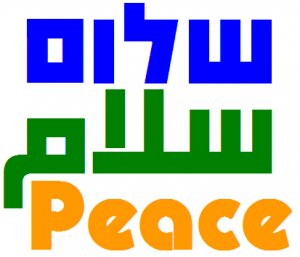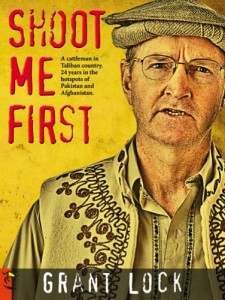Skepticism About Unity and Religions of Peace
 Islamophobia has been the phrase used to describe those that attack, belittle, and generally vilify Muslim people and the Islamic faith. In this last week, in response to the terrible events in Sydney, we have seen plenty of real islamophobia. I’ve seen everything from Pauline Hanson quotes on facebook to my Iranian friends (who are actually Christian, but fit the physical middle eastern stereotype) feeling scared on the streets and in the shopping malls. The #illridewithyou impromptu movement has been a worthy, albeit imperfect, response to this real xenophobia.
Islamophobia has been the phrase used to describe those that attack, belittle, and generally vilify Muslim people and the Islamic faith. In this last week, in response to the terrible events in Sydney, we have seen plenty of real islamophobia. I’ve seen everything from Pauline Hanson quotes on facebook to my Iranian friends (who are actually Christian, but fit the physical middle eastern stereotype) feeling scared on the streets and in the shopping malls. The #illridewithyou impromptu movement has been a worthy, albeit imperfect, response to this real xenophobia.
The response from the Islamic leadership and the Muslim community to the siege in Sydney has been appropriate and right. The evil actions have been absolutely condemned. Condolences have been offered. Again, I have seen in my Iranian friends (including those who are Muslim) the collective sense of shame and betrayal that they feel about this man. Not only has he dishonoured his compatriots, he has betrayed them, who have escaped the trauma of their homeland, by bringing such trauma to their new home.
I have admired the response to the response. Christian, Muslim, and Jewish leaders have moved towards each other with shared prayer times and other expressions of unity. To the extent that we can stand united, as Australians, and as fellow human-beings, this is the right attitude to have.
BUT, and there is a “but”, I have some skepticism when it comes to the level of populist engagement with it all.
1) “Unity” at the expense of distinctives is actually divisive.
I have heard on the radio a montage of last week that has John Lennon as the backing track (“…and no religion too, imagine all the people, living life in peace…”). While nice and sentimental, it is unhelpful on so many levels, consider:
- It misunderstands the role of religion. It presumes nominalism – that people are religious in name only, and religious adherence is merely a facade. Facades can be discarded for the sake of something deeper. But this is not the reality. For many, their religion is already about the deepest depths of who they are. This is true of both Christians and Muslims, and of the Secular Humanists too! At a personal level, “religion” and “world-view” are coextensive – it defines and informs a person’s, and a community’s, identity, purpose, morality, ethics, relationships, self-worth and view of others. It is exhaustive and is not something that can be flipped on and off at whim. It’s why changing religion is called a conversion – it is a total realignment.
- It presupposes that tolerance only comes from the transcendence of religion. It was wrong in Lennon’s time, and it’s wrong now. It’s actually a politically-correct form of xenophobia. Real peacefulness seeks to overcome fear of the different. This “transcending” philosophy actually seeks to eliminate the difference altogether. “You all worship the same God after all, right? It’s all about loving each other, right?” actually causes an elimination of identity through the elimination of distinctives. It is progressive humanism doing what it always does, failing to recognise itself and thereby imposing itself on others. It is the opposite of pluralism.
So when I stand in unity with my Muslim neighbours, it is not because we have been able to transcend our differences, it’s because we have found within (informed, shaped, and bounded by) our world view a place of common ground. And so the Christian doesn’t stand with a Muslim because “we’re all the same really” – no, the Christian stands with the Muslim because the way of Christ shapes our valuing of humanity, our desire to love our neighbour, and even our “enemy” (for some definition). I can’t speak for the Islamic side of the equation, but I assume there are deep motivations that define the understanding of this same common ground. Take away that distinctive and you actually take away the foundations of the unity, the reasons and motivations that have us sharing the stage right now.
2) What on earth is a “religion of peace”? Depending on how you define it, I’ve got some big questions for Islam.
We all love peace. None of us love violence. Except that that is not true in an absolute sense. Sometimes we need to fight injustice, and sometimes we need to punish bad people by doing “violence” to their life or liberty. All it takes for evil to triumph is for good people to do nothing. And so even Christians have the doctrine of the “just war” motivated by standing against tyranny. But then again, the whole point of exercising justice is to bring about the peace that was removed by the injustice. In an imperfect world, peace sometimes rests on ethically bounded acts of violence.
In this broadly brushed sense, Christianity is a “religion of peace” and so is Islam. We want peace, but we don’t like injustice either.
Most of us have peace as the loftiest and deepest of goals. And because these goals are informed by our religious depths (see above), ultimate peace and endpoint-of-religion often go together. This is basic eschatology. Christians believe that the return of Christ will usher in the fullness of rest; the triumph of the Prince of Peace is the advent of a time when tears are wiped away and lions lay down with lambs. Jews, as I understand it, are awaiting their Messiah, who will lead them out of exile into the shalom of life perfectly shaped, inwardly and outwardly, by Torah. Muslims, as I understand it, associate ultimate peace with all humanity united in Islam, perfectly faithful to shariah and living in perfect submission to Allah’s way.
There are differences but clear similarities in these eschatologies. Again, in these broad eschatological brushtrokes Christianity is a “religion of peace” and so is Islam – but we mean something different about the focus and shape of what that peace is.
The sticking point is when it comes to seeking to “advance” the religious cause.
Christians, for instance, are keen to see their neighbours “come to Christ” and convert. In doing this, ideally, they are motivated by a constructive belief that the way of Christ is the way of renewal, restoration, and reconciliation, that brings life and freedom. Ideally, the method of the Christian is persuasion and example. The gospel is proclaimed, and the life of Christ is witnessed through the Christ-imitating ways of Christ’s followers. Violence is not only avoided, it is explicitly prohibited. Jesus commands the sword be put away, even at the cost of his own life. It is grace, not force, kindness and welcome, not compulsion, that leads to the proclamation of truth, the furthering of justice, and reconciliation with God and others in Christ.
In this methodology the phrase “religion of peace” is clearly applicable to Christianity. Yes, there are extremists who have used violence in the name of Christ – from the crusades to Westboro Baptist. But the way of these extremists do not accord with the way of their founder, the heart of their supposed religion. The answer to any Christian extremism is not whether or not the extremist is supported or rejected by fellow Christians, it’s whether or not that extremist is supported or rejected by Jesus. “Jesus never did it that way” is the answer to any Christian warmonger.
But I am skeptical about Islam. The more I learn about the way of Islam’s founder, Mohammed, the more I worry about his methodology.
On the one hand, I can affirm it: I can see the vast majority of Muslims, particularly in the Western World, following the peaceable ways of Mohammed during his early years in Mecca. At this time Mohammed did not have political or military power and preached harmony and non-violent engagement, particularly with other “people of the book.” The “higher jihad” speaks of the war against the destructive passions of the human person. There is much common ground with the Christian here for sure.
But on the other hand, I question it. When I hear about the ways of Mohammed in his later years in Medina I hear of conversions by the sword, the dhimmitude servility expected of Christians, and oppressive enforcement of shariah law. I cannot ignore this. This picture of Islam seem to be in accord with the general vibe of Muslim majority nations, particularly in the Middle East: the denigration of women, and the oppression of freedoms and other religions. Furthermore, I cannot ignore the testimony of my brothers and sisters who have converted from Islam, having experienced firsthand, spiritual and physical violence in the name of Islam.
There is little, if any, common ground here for me to find. The end problem is that I do not see how to find it. It’s not enough to point to the thousands/millions of Muslims who eschew such ways, if that doesn’t tell me how to say to a violent jihadist, “this is not the way of Mohammed.” Because it does look like his way! It seems like peace only in the sense of the “pax romana” – peace when Islam wins, peace through subjugation! And I cannot agree that that is peace at all.
In fact, it looks like an injustice. And an injustice is something I can’t be peaceable about. And I would “fight” it in some sense. In the very extreme, many of my brothers and sisters in recent months have “fought” it by dying for their faith in Northern Iraq and Syria.
So there’s a complexity within Islam. It’s a complexity within the life of Mohammed himself. It’s a complexity that, if I am to respect distinctives, I must engage with. Finding the common ground on one side, questioning deeply on the other.
And of course, my engagement must be in accord with my own methodology: declaration of God’s truth, persuasion, demonstration of God’s love.
In embracing truth, I must question whether “religion of peace” language is helpful. Does it actually help us get to the truth, to real respect for distinctives and motivations, or is it just another way of glossing over?
In embracing persuasion, I must ask questions. They are not unanswerable and I may learn something, but they also make a point: “Islam is a religion of peace” must be met with “What do you actually mean by that? How do you embrace this foundational teaching, or this behaviour of the devout, that appears to contradict the way of peace?” I can even put my own perspective: “Let me tell you about the truest peace I have ever known, I have found it in Jesus Christ.”
In embracing demonstrations of love, I continue to welcome. I recognise a fellow human. I recognise someone wrestling with the deep things of life, and empathise. In particular, in my context where I am the “majority” I use that position to stand against xenophobia.
Do I want to get rid of Muslims from my country? No!
Will I associate a nutcase who takes the name Muslim with the essence of that religion? No!
Will I refuse to share common ground, particular in times of national emotional unity? No!
Will I ride with them, and speak up for those who feel mistreated? Yes! Absolutely!
But I’ll still have some big questions…




